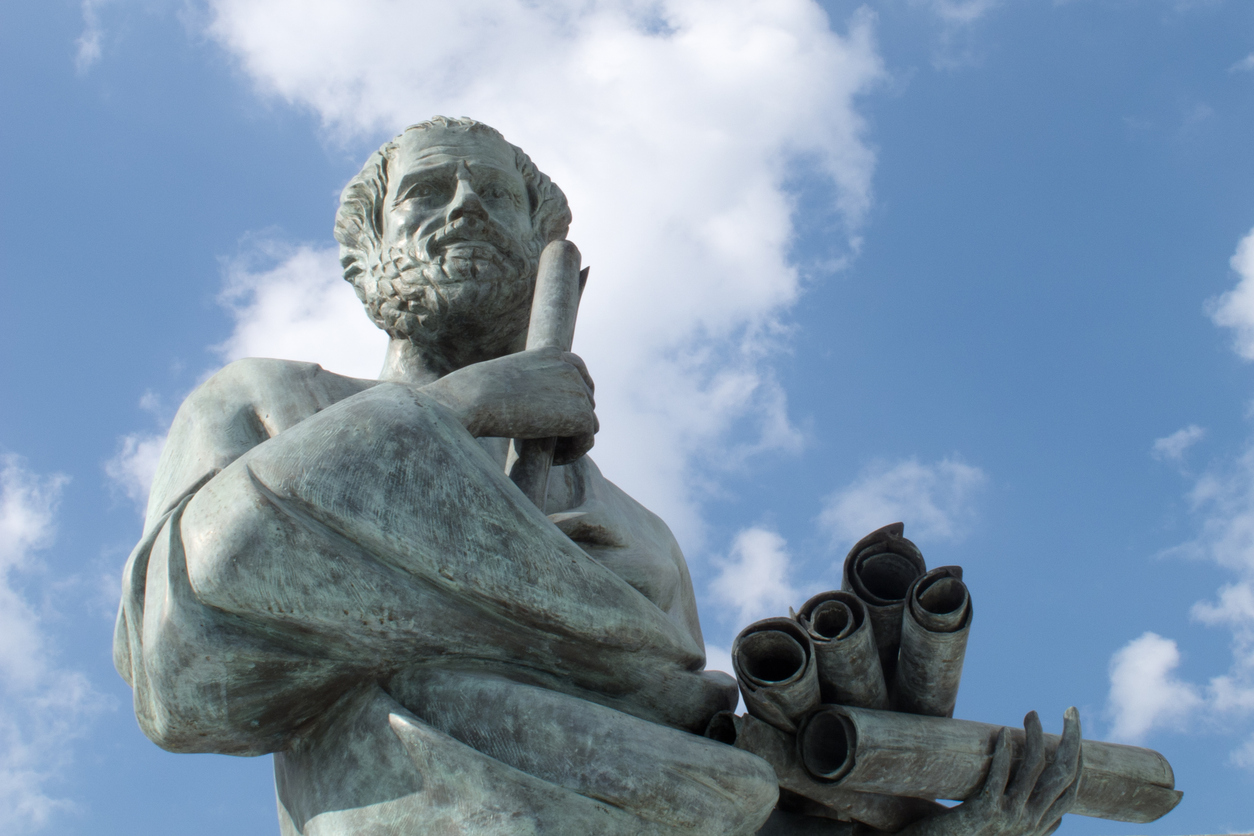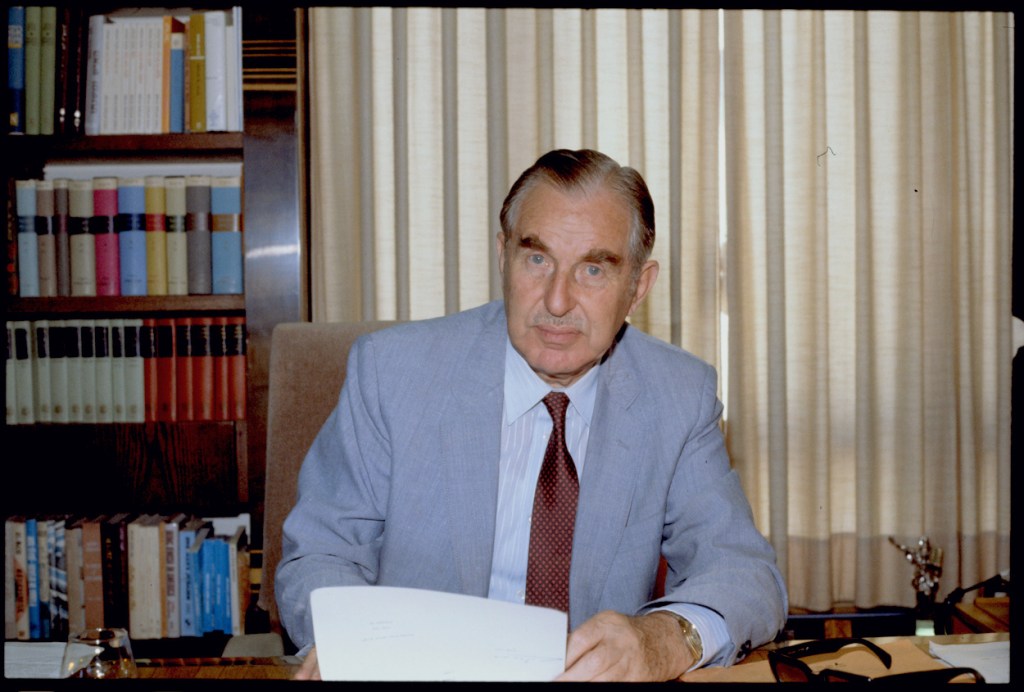Why, since the 1970s, has liberalism become so virulent? And why is it inclined to break down, or to drastically mutate, as we now see?
In answer to the second question, liberalism involves a series of separations between different social aspects that have to be kept artificially apart, and yet which remain in tension, and can ultimately not be kept apart at all.
In each case what one sees is an initial separation of powers, followed later by the illegitimate capture, in liberal terms, of one power by another, and eventually by a fusion of powers which collapses their separation altogether. At this point, the always lurking oligarchy of liberalism is fully exposed to view, and a mass protest against this oligarchic order tends to happen.
First, there is the overriding tension between the absolutely sovereign state and the individual. Does the contract between such individuals really precede the state, or must the state already be in place for the contract to be possible? Liberalism is then drawn at once towards an international order of pure economy beyond the nation state, besides a legality of unmediable rights without distributive justice, and yet equally towards a tyrannic trumping of all rights through state surveillance, albeit at times in the claimed interest of sustaining the non-interference of one person with another. In both directions the capture of one pole by its opposite tends to eventual fusion.
Does commercial society really come first as something natural, or is it rather enabled by the armed state in terms of rapacious enclosures and the growth of a war-linked debt economy, whereby finance tends to uproot and subordinate local production? In reality, given this debt-economy, both capitalism and the liberal state are preconditions of each other. But just for that reason, the market power of corporations can tend to capture the state, and conversely the power of the mercantilist state can capture the market process. Thus, today we have the contrast of the market state in the US and the state market in China. Insofar as they increasingly appear similar, we are witnessing a process of capture tending towards complete oligarchic and so-called ‘neo-feudal’ fusion.
Can the answer to this undesirable process be simply a renewal of social democracy? It would seem not. The social democratic model is breaking down, because capitalism no longer delivers enough growth to sustain it, and in many countries people impossibly demand both more state spending and lower taxes. Meanwhile, the intensified financialisation of capitalism outruns attempts at the political limiting of inequality, even in a country like Sweden. The reason capitalism no longer delivers sufficient growth is because it turns out that it is primarily driven by finance and rents and share-holder value rather than production, or even profit. It is a process of dissolution into abstraction and material conglomeration, and only accidentally has it been productive.
So the answer to the first question as to why postwar postliberalism came to an end is that initially, with the inauguration of neoliberalism in the 1970s, capitalist forces came to reject a focus on demand that threatened both their profits and their hegemony, but that eventually in the 21st-century they retreated to a purer finance capitalism in hoped-for perpetuity, rather than allow a new era of social democracy.
It follows that the only real postliberal recourse in political economy would now be to try to reimagine a benign corporatism. We need to demand by law social purposes from firms, alongside profit and governance-sharing for workers, with consensually and legally adjudicated fair prices for consumers. Sometimes particular corporate bodies should be granted special but circumscribed privileges and tasks.
Under a genuine and good, organic corporatism, the trade-off for financiers and business people must be at once a new pride in the honour of pursuing a real and not spurious social function, and the granting of real modes of political influence and representation for trades and vocations, however that is to be achieved.
There is also the question of whether this can be achieved just nationally or must be achieved also internationally. Here again we face a liberal conundrum as to whether the rights of nations come first, as for Grotius, or the rights of individuals within states, as for Hobbes.
Neoliberalism initially tended to abolish state democracy in favour of an international market order. Yet rogue island-states and now whole protectionist nations tend to try, in reaction, inversely to suck global finance and trade within their orbit, often in order to escape even international regulations as too irksome.
Indeed, it has now apparent, as with the alliance of Donald Trump and Elon Musk, that national populism has been captured by a mutated neoliberalism. To seriously dismantle irksome regulations requires the capture of state power and democratic limitation from within. Above all, it requires capture of the still most powerful state, capable of altering the politico-economic behaviour of everywhere else across the globe: namely, as has now occurred, the USA.
It is correct in this regard to conclude that the left has foolishly alienated itself from popular sentiment (including of many women and racial minorities) by abandoning the universally human in favour of identitarian concerns. Yet today a sense that identitarian groups are insufficiently individualistic and tend to inhibit the free-flow of market forces in favour of social and political considerations seems to have prevailed within capitalism: Silicon Valley has shifted support from the Democrats to Trump and air-conditioned Texas is displacing breezy California. At the more sinister end of this shift, and perhaps lurking only just beneath its surface, the belief that unmitigated competition is rooted in nature is seeing the return of outright ‘scientific’ racism and justifications of female subordination.
All of this means that while we may have entered a period of postliberal crisis, the new typical fusions of national populism with neoliberalism, of external tariffs with internal deregulation, do not at all represent a genuine new postliberal substantive order.
How could that nonetheless come about?
To some degree, despite its capture by neoliberalism, the answer here lies with the revival of the relatively self-sufficient nation state, within which it is more possible to coordinate the economic with the political and the social.
A longer version of this speech was delivered at the Telos-Paul Piccone Institute Postliberalism conference in Cambridge on 13 to 14 December.








Comments